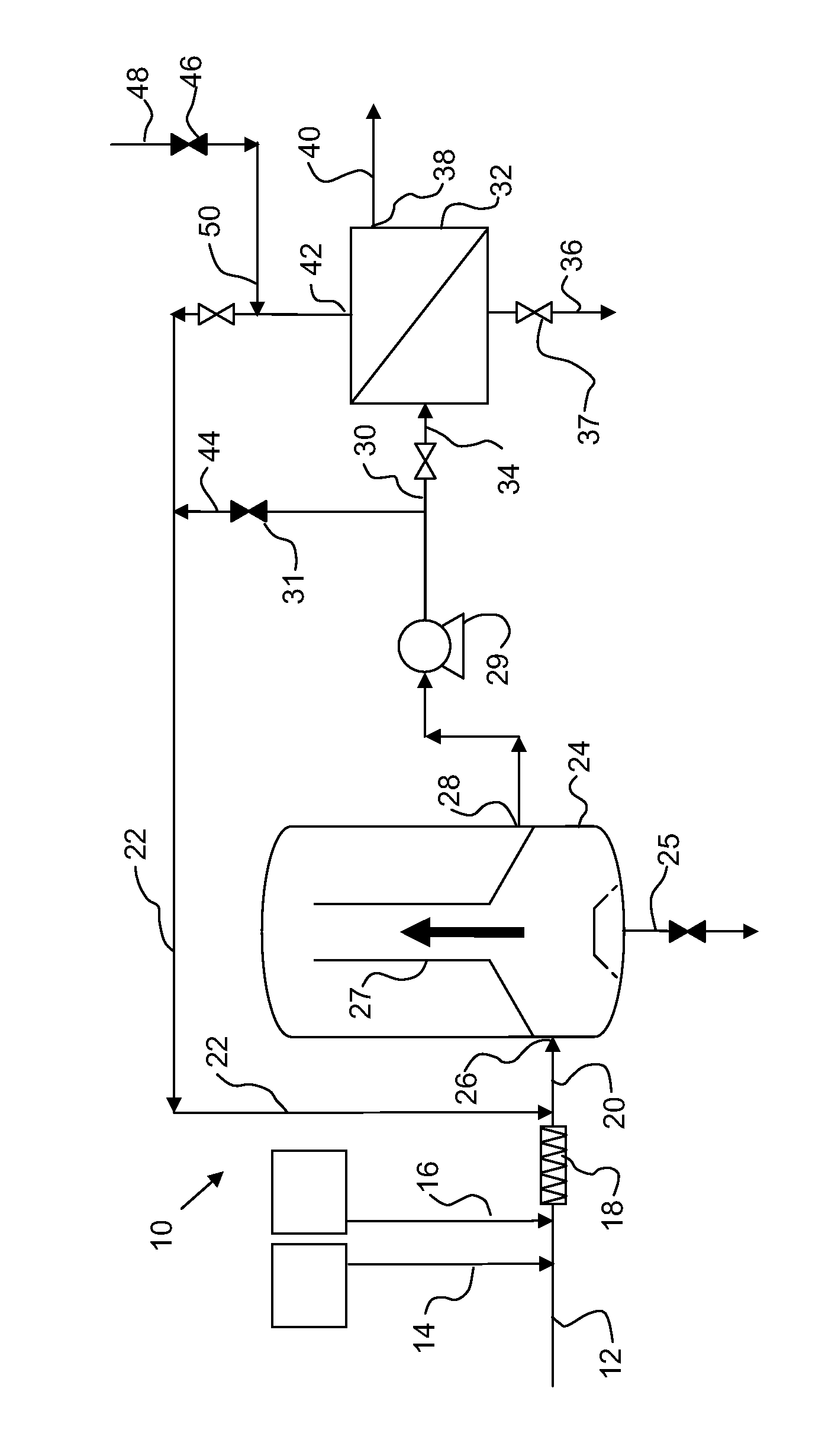Removing solids in monoethylene glycol reclamation
a monoethylene glycol and solids technology, applied in the direction of oxygen compound purification/separation, product crystallization, separation process, etc., can solve the problems of saline formation water's detrimental effect on conventional meg reconcentrator units, methanol is an unwanted contaminant,
- Summary
- Abstract
- Description
- Claims
- Application Information
AI Technical Summary
Benefits of technology
Problems solved by technology
Method used
Image
Examples
Embodiment Construction
[0011]In a MEG reclamation system, sodium carbonate (Na2CO3) is injected into a MEG stream containing an alkali metal salt such as calcium chloride (CaCl2) to precipitate calcium carbonate (CaCO3) from the MEG solution to reduce or eliminate CaCO3 deposition on the heating element of a downstream MEG feed preheater prior to the MEG flash separator of a typical MEG reclamation system. However, the CaCO3 particles formed are very small in size, on the order of 2-5 microns in average particle size and thus they are difficult to filter out. It has been discovered that by seeding the CaCO3 in a MEG solution, the CaCO3 will form crystals or larger particles which are easier to separate and filter out.
[0012]Non-limiting exemplary methods and apparatus described herein enhance the removal of a salt from a MEG stream intermixed therewith by means of salting the contaminated stream with carbonate seeds, and then letting the carbonate particles grow in size in a seeding vessel. The relatively ...
PUM
| Property | Measurement | Unit |
|---|---|---|
| particle size | aaaaa | aaaaa |
| size | aaaaa | aaaaa |
| particle size | aaaaa | aaaaa |
Abstract
Description
Claims
Application Information
 Login to View More
Login to View More - R&D
- Intellectual Property
- Life Sciences
- Materials
- Tech Scout
- Unparalleled Data Quality
- Higher Quality Content
- 60% Fewer Hallucinations
Browse by: Latest US Patents, China's latest patents, Technical Efficacy Thesaurus, Application Domain, Technology Topic, Popular Technical Reports.
© 2025 PatSnap. All rights reserved.Legal|Privacy policy|Modern Slavery Act Transparency Statement|Sitemap|About US| Contact US: help@patsnap.com


